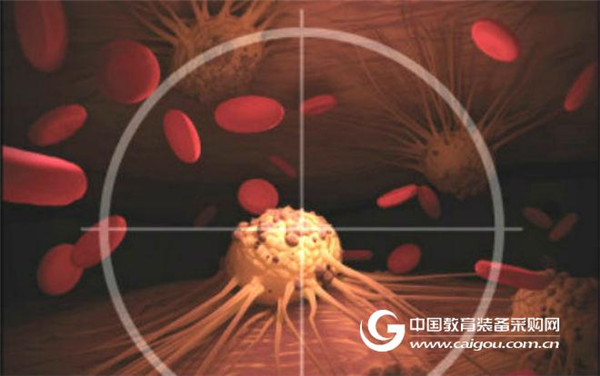In Feng Xiaogang's film "If You Are the One 2", Li Hongshan, who played by Sun Honglei, died of melanoma, and many people knew about the disease. On September 27th, the journal Nature published an article that revealed the key causes of melanoma recurrence and provided a side-attack strategy to find new therapeutic targets. In contrast to the episodes of melanoma that are not well treated in the movie, in recent years, thanks to the approval of targeted therapies (BRAF inhibitors, MEK inhibitors) and immunotherapy (PD-1, CTLA4 antibodies), Melanoma has become the fastest-changing tumor in all malignant tumors, and the survival rate of patients with advanced disease has been significantly improved. However, these treatment strategies face resistance problems, and most patients have a risk of recurrence. Why is this? Recently, scientists at the University of Pennsylvania and the Wistar Institute have identified a key cause of melanoma recurrence—although combination therapy can block the growth of cancer cells, these sputum cells bypass these blocks. Continue to grow and spread using other pathways. “Tumor cells are smart,†said Wei Guo, a co-author of the article and a professor of biology at the University of Pennsylvania School of Arts and Sciences. “Once the first route is blocked by drugs, they turn to other pathways that lead to disease. 'Returning', even more fierce." The bottleneck of targeted therapy: tumor resistance About half of the melanomas are derived from mutations in the BRAF gene. BRAF is a key protein kinase in the MAPK/ERK signaling pathway that, once mutated, is overactive, leading to excessive cell growth. Therefore, scientists have developed targeted drugs that inhibit BRAF and have achieved certain effects. However, not all patients respond to the drug, and even patients with obvious effects almost inevitably have drug resistance problems. In order to improve the efficacy of BRAF inhibitors, scientists have locked in another key enzyme in the MAPK/ERK signaling pathway, MEK, and developed MEK inhibitors. The combination of a BRAF inhibitor and a MEK inhibitor is one of the best treatment options for the treatment of advanced melanoma to date. However, these effects are temporary. Tumor 狡猾 VS human wisdom A few years ago, Professor Guo Wei and his postdoctoral Hezhe Lu found that melanoma cells with drug-resistant properties were more aggressive than other tumor cells. To analyze the causes of drug resistance, Professor Guo Wei and the team analyzed changes in tumor cells before and after treatment with BRAF inhibitors or BRAF/MEK inhibitors. They found that the use of only BRAF inhibitors reactivates ERK (located downstream of BRAF in the main signaling pathway), thereby disrupting the inhibitory effect of the drug on the tumor. However, in collaboration with Meenhard Herlyn, director of the Wistar Institute's melanoma research center, and Xiaowei Xu, a pathologist at the University of Pennsylvania's Perelman School of Medicine, they found a different mechanism – in many cell lines and patients. In tumor samples (resistance to combination therapy), ERK was not activated. Instead, another parallel pathway regulated by the PAK enzyme was activated. Recent studies have shown that treatment of tumor cells that are resistant to combination therapy with PAK inhibitors can repress them. When researchers up-regulate PAK protein expression, metastatic melanoma cells develop greater resistance to inhibitors that target the MAPK pathway. PAK protein can protect the "swelling growth" of tumor cells by protecting the cell cycle and inhibiting apoptosis. Interestingly, when researchers tried to use PAK inhibition as a strategy to fight cancer, they did not achieve the desired results. "It seems that only when the ERK pathway is inhibited, the PAK protein will 'awake'. Only in this case, the effect can be seen using PAK inhibitors." Professor Guo Wei emphasized. New strategy to fight tumor recurrence The signaling pathway controlled by the PAK enzyme family is expected to be a new target for melanoma treatment. This latest study has important implications for the development and proper use of PAK inhibitors. "Our research provides a side-attack strategy to prevent melanoma cells from reconnecting to the signaling network." Director Meenhard Herlyn believes that "when cancer becomes paralyzed, we need to be more resourceful." Shanghai Chuangsai Technology has excellent performance, interleukin cytokines, fetal bovine serum, electrophoresis equipment scientific instruments, raw material drug standards, chemical reagents, cell culture consumables, Shanghai Chuangsai, mass products special promotions, welcome to inquire! Therapeutic Blend Essential Oil Safflower Oil,Pomegranate Seed Oil,Sweet Perilla Oil,Therapeutic Blend Essential Oil Ji'An ZhongXiang Natural Plants Co.,Ltd. , https://www.jazxnaturaloils.com